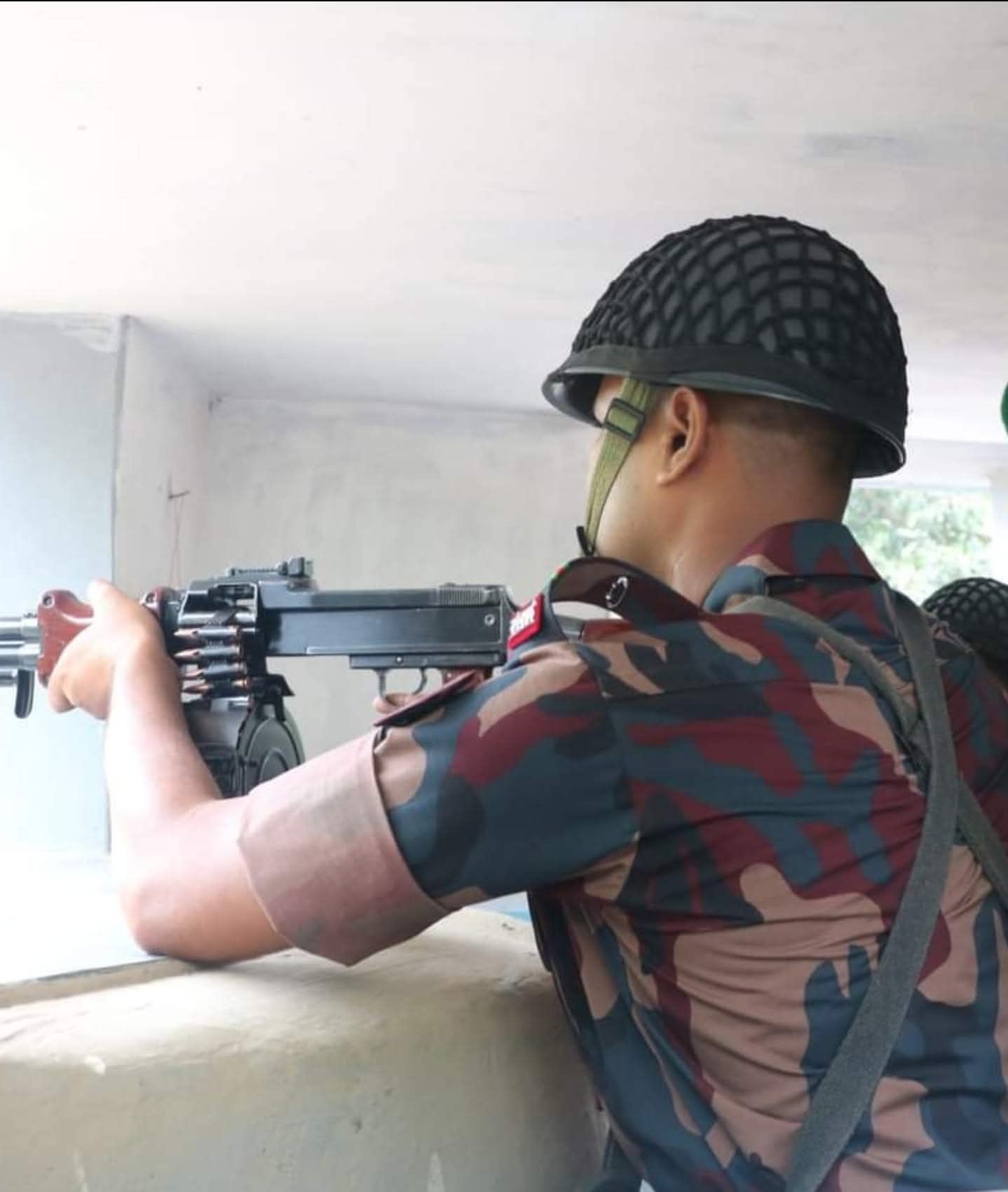Chhota Foringa BOP inaugurated to bolster security along the Bangladesh-India border
The Border Guard Bangladesh (BGB) has issued a strong warning to India’s Border Security Force (BSF), declaring that any further “push-ins” of Indian citizens across the international boundary will not be tolerated. The statement was made by Brigadier General Sohel Ahmed, Regional Commander of BGB’s Chattogram South-East Region, during the inauguration of the Chhota Foringa Border Observation Post (BOP) in Mirsarai Upazila, Chattogram, on 5 October 2025.
Brigadier General Ahmed condemned the repeated instances of Indian nationals — particularly Bengali-speaking individuals — being illegally pushed into Bangladeshi territory under false claims of being Bangladeshis. “Such actions are unacceptable and will be met with firm resistance,” he warned, adding that the BGB will take all necessary measures to uphold the sovereignty and territorial integrity of Bangladesh.
He reaffirmed that BGB remains fully committed to suppressing all forms of border crimes, including illegal crossings, human trafficking, narcotics smuggling, and cattle trade. The commander highlighted that these issues are particularly acute along unfenced stretches of the border in Chattogram and the Chittagong Hill Tracts, where challenging terrain and porous borders complicate surveillance efforts.
Strengthening the Frontier
The newly inaugurated Chhota Foringa BOP marks a significant addition to Bangladesh’s border defence infrastructure. It is the 12th Border Observation Post established under the 43 BGB Battalion within the past year — part of a wider modernisation and expansion drive to enhance the force’s tactical reach and situational awareness in sensitive frontier zones.
Located in a remote hilly area on the banks of the Feni River, approximately 3 kilometres from the Koylarmukh border outpost, the Chhota Foringa BOP is expected to play a pivotal role in monitoring and securing a five-kilometre stretch of the border. The areas under its purview include Budda, Gheramara, Chhota Foringa, Fatikchhari Bagan Bazar, and Dantmara Union.
BGB officials stated that the establishment of this new post will significantly enhance surveillance capabilities and enable quicker response times to incidents such as smuggling attempts, illegal crossings, and drug trafficking. The new facility will also strengthen inter-post coordination and facilitate improved intelligence gathering in one of the most rugged and strategically sensitive sectors of the Bangladesh-India frontier.
Joint Effort Against Cross-Border Crimes
Senior BGB officers, including Guimara Sector Commander Colonel Md Mizanur Rahman and Ramgarh Zone Commander Lieutenant Colonel Md Ahsan Ul Islam, attended the inauguration ceremony. They reiterated the force’s commitment to maintaining peace and stability along the border through vigilance, discipline, and proactive engagement with local communities.
Bangladesh and India share a 4,096-kilometre border, the fifth longest land boundary in the world. While bilateral cooperation between BGB and BSF remains active, tensions occasionally flare over issues such as illegal crossings, smuggling, and the alleged “push-ins” of Indian citizens.
Security analysts note that the continued expansion of BGB’s observation posts, combined with modern surveillance equipment and improved road access in remote frontier regions, has begun to transform Bangladesh’s border management capacity. The Chhota Foringa BOP is viewed as part of this broader strategic effort to secure vulnerable segments of the frontier and project BGB’s operational reach across previously under-monitored areas.
A Message of Resolve
The warning from Brigadier General Sohel Ahmed underscores a growing firmness in Bangladesh’s border policy. As the regional commander made clear, “The BGB will not compromise the nation’s territorial integrity under any circumstances. Any attempt to violate our border or to infiltrate Bangladesh unlawfully will be met with immediate and decisive action.”
The Chhota Foringa BOP thus stands not only as a symbol of enhanced border security, but also as a statement of Bangladesh’s determination to safeguard its frontiers from all external and criminal threats.



